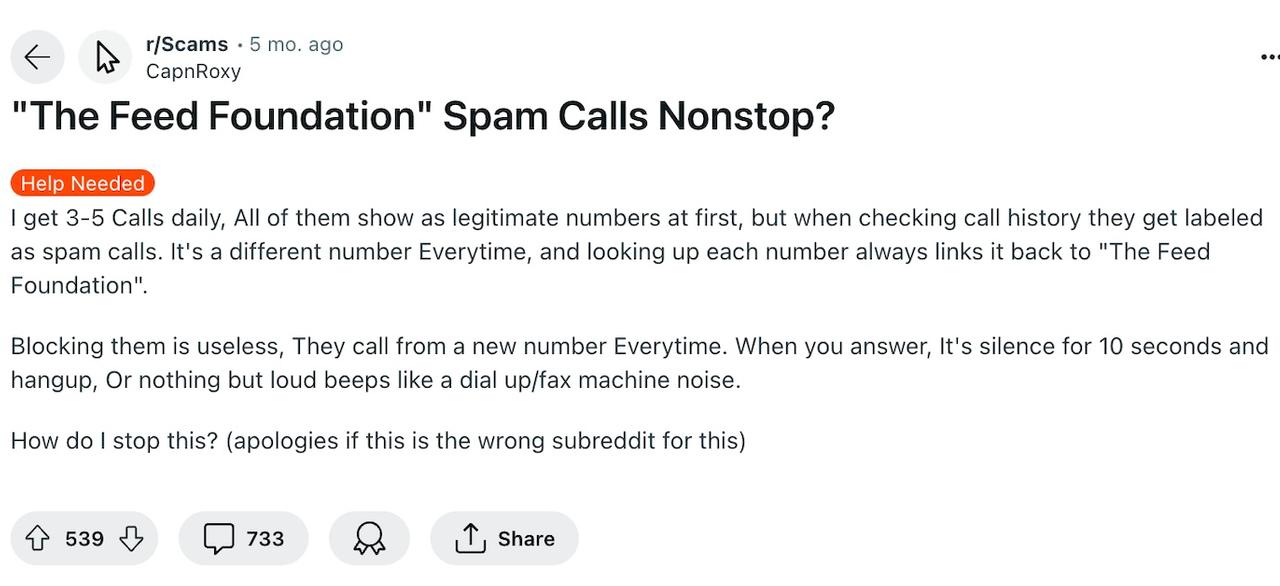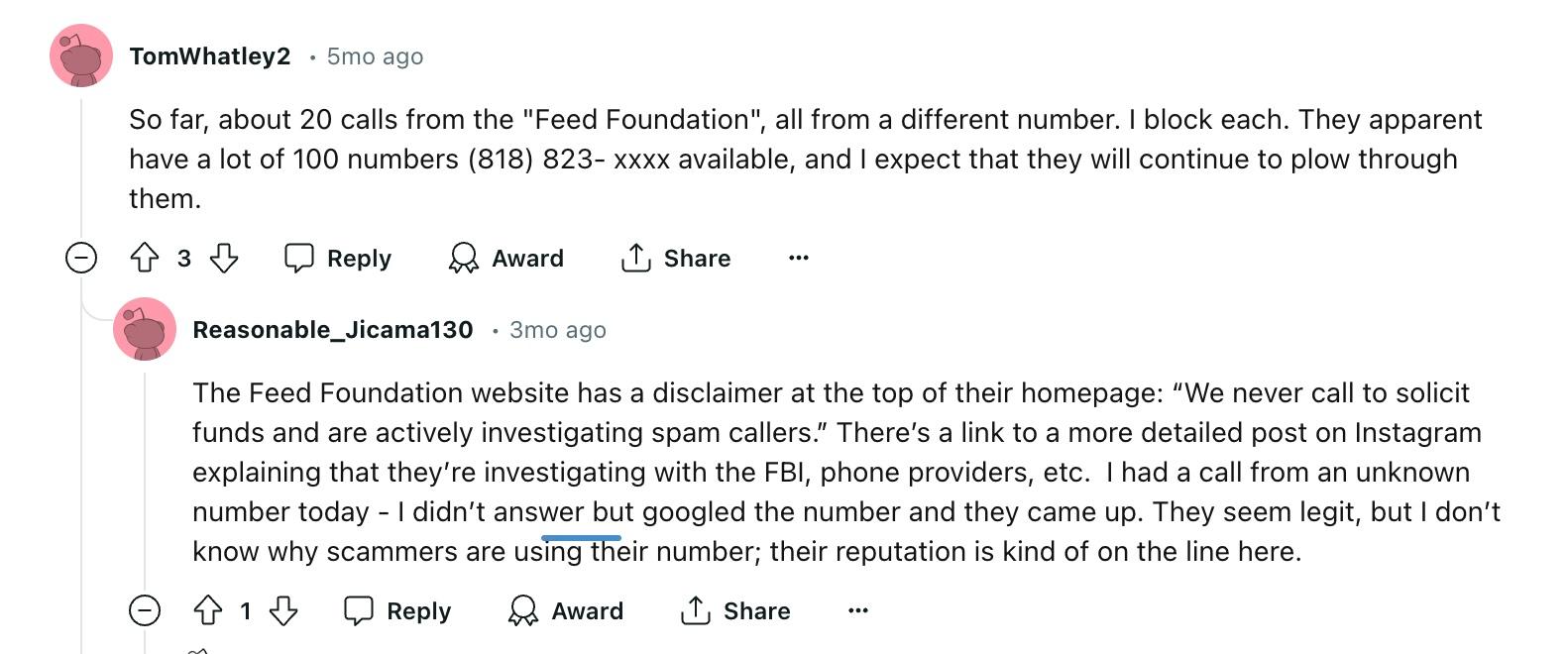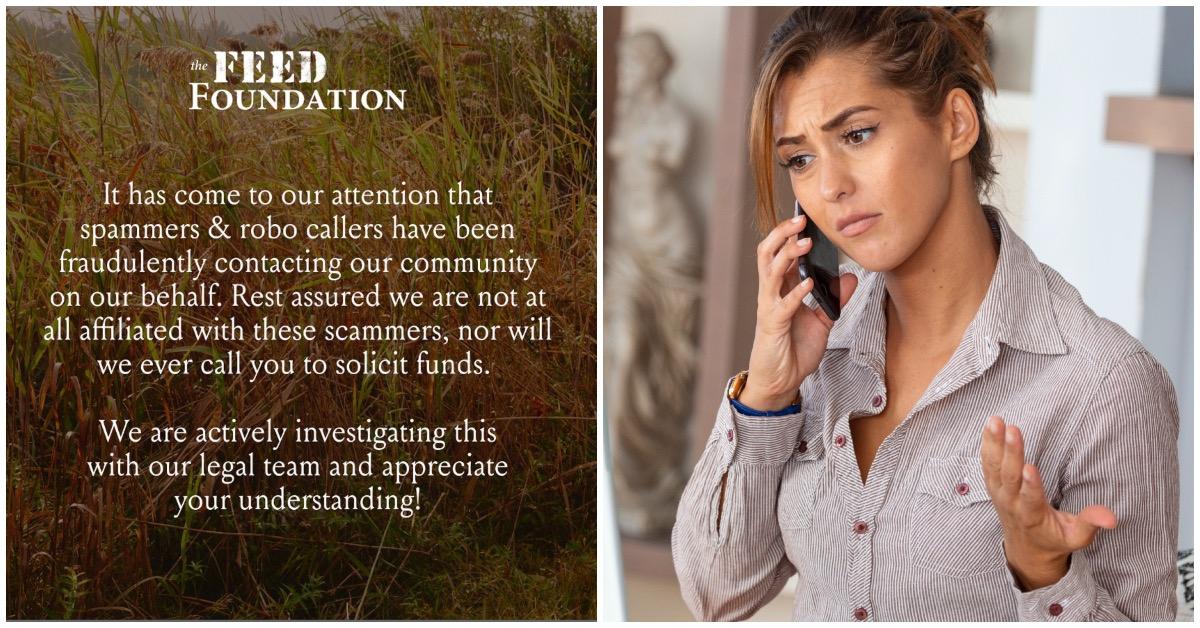Why Is The Feed Foundation Calling Me? (Explained)
Why is the Feed Foundation calling me? This is a question that resonates with growing numbers of individuals, raising concerns about privacy, data security, and the very nature of how we are contacted in the digital age. The unsolicited call, a persistent buzz in our lives, often triggers an instant assessment: is it important, a sales pitch, or something more sinister? The Feed Foundation, with its diverse activities, warrants close inspection when it is making those calls.
The rise of digital communication has blurred the lines between legitimate outreach and intrusive marketing. The proliferation of data breaches and the increasing sophistication of scammers have made us increasingly wary of unexpected contact. For those receiving calls from the Feed Foundation, the underlying question is not just "who is calling," but "why me?" Is this part of a larger campaign? A targeted outreach based on data collected, possibly without explicit consent? Are we contributing to a conversation we didnt know we were invited to?
To understand the context, the Feed Foundations activities need examination. The Feed Foundation is not an instantly recognizable organization, so being contacted by it can seem strange. This can be a sign that this specific name is used for a very specific purpose. This creates a challenge for those being contacted, because we can't know if there's a real need for this call, if it's a fraud or not.
The digital footprint we leave behind is extensive and multifaceted. Every search, every purchase, every social media interaction contributes to a vast network of data points that can be analyzed and used for various purposes. This reality is relevant when an entity like the Feed Foundation initiates contact. The first question is: how did they get my information? Was it through a legitimate data collection practice? Did they buy it from a third party? Or is it a product of a data breach? If the latter, it adds another layer of mistrust and makes the caller suspect.
Many organizations do obtain personal data and information through publicly available resources or through various forms of marketing channels. Its critical to understand the Feed Foundation's objectives. Does it have a charitable mission? Is it focused on advocacy? Is it promoting a specific product or service? The answer will clarify the motivations behind the contact and help those who get a call decide how to respond.
The recipient of a call from the Feed Foundation is within their rights to seek information. A simple query should be enough. "Why are you calling?" is the most direct approach. Also, you have the right to ask what data of yours they hold. Furthermore, if the communication feels intrusive, rude, or manipulative, it is always in your power to disengage. You can ask for the callers name, the organizations name, and the basis for the call. This should be followed by a clear statement: "Please do not call me again." And make sure they follow through.
The issue of data protection is now recognized as a right by legislation such as the GDPR (General Data Protection Regulation). It has been designed to provide a new framework of safeguards around our personal data. Entities contacting individuals must adhere to these standards, offering transparency and accountability. This is a fundamental aspect when examining any unsolicited contact, particularly from an organization like the Feed Foundation, whose activities and purpose are not immediately clear to the general public.
The response to the question "why is the Feed Foundation calling me?" must begin with a clear understanding. First, the call itself is a symptom of a wider issue. We live in an interconnected world in which data is constantly exchanged and accessed. Second, due diligence is important. Before you reveal anything, it is essential to perform your own investigation. Find out about the Feed Foundation: check its website, look up its online reputation, and check whether there are any related complaints. This is a crucial first step towards protecting your privacy and personal interests.
If the Feed Foundation is contacting you, consider several steps. Firstly, document the date, time, and contents of the call. Note the callers name and the organization. If any personal information is requested, decline to provide it until youve verified the source. Search online for the Feed Foundation. See if there are any public discussions, news reports, or customer reviews. If you have a feeling that it is suspicious, report the call to the appropriate authorities, such as the Federal Trade Commission or your local consumer protection agency. This will help build a collective database of information and may help protect other people from potential scams.
The investigation extends further when the Feed Foundation calls. It's crucial to consider whether the foundation has a legitimate motive for contacting you, or if the call violates privacy. Some calls will have the purpose of gathering personal information, such as banking details. Be extremely careful about providing this type of information. Be cautious about any offer that sounds too good to be true. Legitimate organizations do not use high-pressure tactics, nor do they need to hide their information. If something feels off, trust your instincts and end the call.
The digital age poses both opportunities and challenges. Organizations use digital communications to reach their target audience and, at the same time, privacy has become an important concern. We are all responsible for protecting our information and using the available tools to combat any potential harm. By asking questions, gathering information, and reporting suspicious activities, people can reduce their exposure to scams and threats. The question "why is the Feed Foundation calling me?" serves as a reminder of this important need.
The situation is likely to evolve as technology advances and new approaches to data collection and communication emerge. Continuous vigilance and adaptive response are important. Legislation will also play a role in protecting personal data and ensuring that organizations uphold the standards of ethical communication. It is important to be aware of these developments and make decisions about your privacy.
In conclusion, the question "why is the Feed Foundation calling me?" is a call to reflection. It is an appeal for a proactive and well-informed approach to managing our personal data in the digital landscape. It is an invitation to examine the boundaries between legitimate communication and intrusion. By understanding the landscape, exercising caution, and remaining vigilant, individuals can maintain control of their information and safeguard their privacy. The Feed Foundation's contact serves as a reminder of the ongoing need to protect our personal data in the modern digital world.


